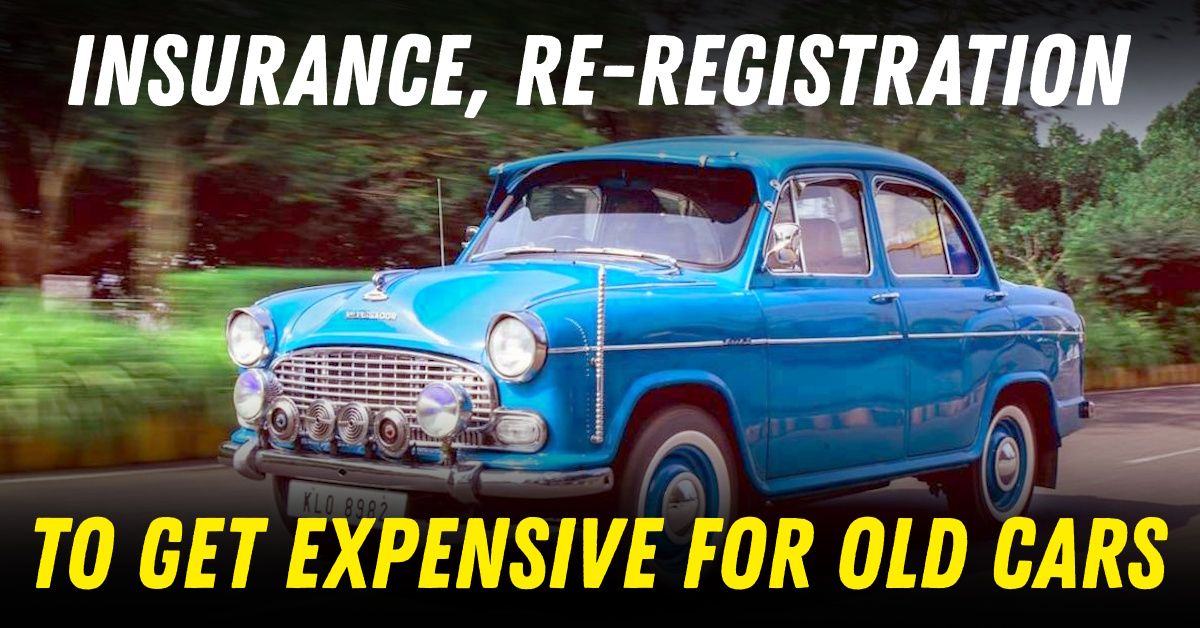How Govt Plans To Make Owning Your Old Car More Difficult Than Ever


Over the last few years, the government of India has emphasized that they want all the “end-of-life” vehicles to get off the public roads. For this, it has been implementing different policies to phase out the old vehicles. Now, once again, a new report has emerged which mentions that the government of India is planning to make owning old cars extremely expensive. This will be achieved by increasing the insurance premiums and also raising the re-registration fees extensively.
According to the latest reports, the Ministry of Road Transport and Highways and the Ministry of Finance are jointly working on a proposal which will affect all the owners of older vehicles. It will especially affect the owners of diesel vehicles older than 10 years in Delhi-NCR and the owners of petrol vehicles older than 15 years in Delhi-NCR.
The same will affect the owners of vehicles over 15 years and private vehicles over 20 years old in other parts of the country. Now, coming to the new proposal, which is under draft, the insurance premiums of these older cars and the re-registration fees will be increased significantly.
As per the reports, the insurance premiums for end-of-life vehicles will be calculated based on age, emissions, and condition. Additionally, the re-registration costs could be raised to match or exceed the cost of registering a new vehicle. These new rules might be implemented through the Central Motor Vehicle Rules (CMVR).
Commenting on the topic, an official stated, “There were consultations held with the industry in July, and the government was of the view that end-of-life vehicles should be disincentivized. There is a consideration that insurance costs for such vehicles can be increased. Also, higher re-registration costs may also help in this regard.”
Meanwhile, another anonymous official highlighted, “Under the plan, while vehicle scrappage would be the preferred route for old, unfit, and polluting vehicles, those looking to extend the life after getting their vehicles tested would also be discouraged with higher insurance and registration costs.”
In order to justify the move, which is at the proposal stage, it has been mentioned that the government wants to disincentivize keeping old, polluting vehicles on roads. It aims to achieve this by making ownership financially unattractive and expensive. The government also wants to promote scrappage, so even if vehicles pass fitness tests, keeping them would be discouraged through higher costs, making people scrap their cars.
According to the International Energy Agency, vehicle emissions contribute to 12% of total air pollution globally. It has been highlighted that the impact is more severe in metro cities like New Delhi, where pollution often hits the “severe” category.
Arti Mulik, Chief Technical Officer at Universal Sompo General Insurance, said, "Pollution from ELVs contributes to respiratory illnesses like asthma, bronchitis, and chronic obstructive pulmonary disease (COPD).” She added, "As insurers, we have a social responsibility to support the environment and public health."
Like most policies which the government has been rolling out in recent years to phase out end-of-life vehicles, this new proposal is also getting a lot of backlash. It is being stated that the first-time insurance and road tax are already high enough, and increasing them will only burden the middle class, which cannot afford to buy new vehicles ever so often.